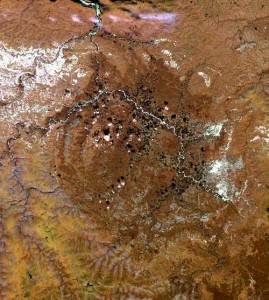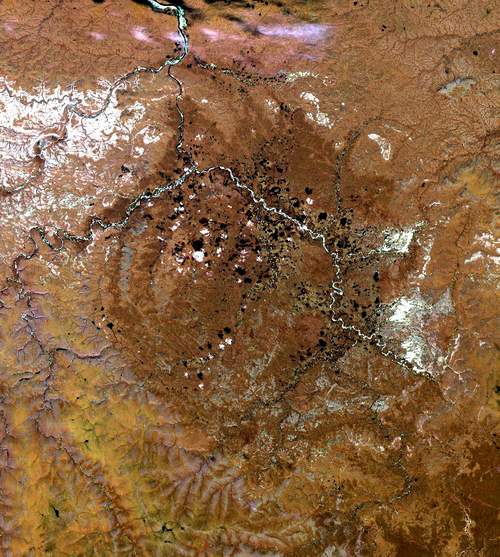 The meteor impact that caused Russia’s Popigai crater located in Siberia may be the cause the Eocene mass extinction event that occurred just over 33 million years ago. By measuring certain isotopes within rock samples from the Eocene period, iPLEX graduate student Matt Wielicki able to tie a short-lived, rapid cooling period in global climate to around the same time that the Popigai crater, one of the ten largest impact craters on Earth, was formed. The rapid onset of colder temperatures could be explained by a large quantity of reflecting particulates being launched into Earth’s atmosphere during the impact that blocked out the Sun. During this period, many aquatic species went extinct including the earliest types of toothed whales and many types of sea urchins and snails.
The meteor impact that caused Russia’s Popigai crater located in Siberia may be the cause the Eocene mass extinction event that occurred just over 33 million years ago. By measuring certain isotopes within rock samples from the Eocene period, iPLEX graduate student Matt Wielicki able to tie a short-lived, rapid cooling period in global climate to around the same time that the Popigai crater, one of the ten largest impact craters on Earth, was formed. The rapid onset of colder temperatures could be explained by a large quantity of reflecting particulates being launched into Earth’s atmosphere during the impact that blocked out the Sun. During this period, many aquatic species went extinct including the earliest types of toothed whales and many types of sea urchins and snails.
To learn more about this discovery, visit Livescience.
Follow Iplex
